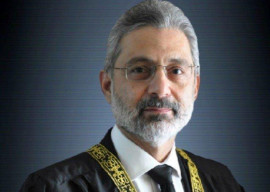
The pools will have to maintain at least 20% of their assets in liquid securities, though this level can be reduced to 10% with the approval of Shariah scholars. The rules allow banks to aggregate pools to help them manage liquidity in the short-term money market.
Under modaraba, assets are managed by a bank on behalf of clients, with income and expenses shared under a pre-agreed ratio. The rules stipulate this ratio cannot be reduced during the deposit’s tenor.
The equity-like nature of modaraba accounts can make them vulnerable to market price swings, so the rules allow the smoothing of profits using a profit equalisation reserve.
Banks will also be required to set up an investment risk reserve (IRR) which they can use to offset losses from future investments. They can develop their own models to determine the size of the IRR; if they have no model; banks will have to contribute up to 1% of available profit to the IRR.
Reforms
Through a series of reforms, Pakistan’s regulators aim to lift Islamic finance’s share of its banking sector to 15% in the next five years. Islamic banks held 8.2% of total banking assets and 8.9% of deposits in June this year, central bank data showed.
The new rules are among the most comprehensive issued by any central bank in this area, said Omar Mustafa Ansari, Karachi-based partner at Ernst & Young Ford Rhodes Sidat Hyder. “Shariah advisers and scholars are generally praising these instructions as a step forward.”
Market players, however, may not see it that way.
“The industry is not so happy on this move. They feel that these are too strict guidelines and the State Bank of Pakistan is trying to get smarter as compared to other regulators and supervisors,” said Ansari, adding that his comments were his personal views and not those of any company or institution. If Islamic banks follow the instructions in their essence, they will face initial difficulties but the banking system will become more Shariah-compliant and risk-averse, Ansari added.
In addition, the Institute of Chartered Accountants of Pakistan is finalising a standard which will add further accounting and disclosure requirements, he said.
A June report by the SBP raised concerns about the sustainability of Islamic banks’ profitability, which has grown since 2010, since the increase in profits has been driven primarily by investments rather than basic banking business.
Published in The Express Tribune, November 22nd, 2012.










































COMMENTS
Comments are moderated and generally will be posted if they are on-topic and not abusive.
For more information, please see our Comments FAQ